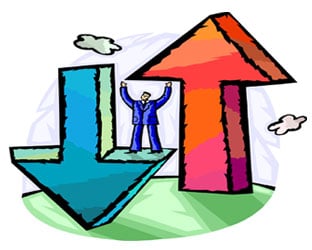 The Deloitte Consumer Spending Index for April is out, and a mixed brew of economic elements have resulted in some improvement over March – but Deloitte still sees hurdles that will likely prevent a truly dramatic increase in consumer spending.
The Deloitte Consumer Spending Index for April is out, and a mixed brew of economic elements have resulted in some improvement over March – but Deloitte still sees hurdles that will likely prevent a truly dramatic increase in consumer spending.
The key event has been the application of the brakes in terms of falling house prices – they are not declining as rapidly as before, which helped prop up the index. It rose from 1.88 in March to 2.07 in April.
“The Index has been undergoing a mix of changes as housing, energy prices and unemployment tip back and forth each month,” explains Carl Steidtmann, Deloitte’s chief economist and author of the monthly Index. “On the positive side, some stability in home prices over the last two months helped the Index move upward. However, with a jobless recovery, falling incomes and rising savings rates, consumer spending growth may turn sluggish.”
Deloitte highlighted the following economic trends:
* Real consumer spending posted a small rebound in the first quarter due to a rise in auto sales driven by a significant reduction in the quality of auto lending.
* A significant decline in driving may be having an impact on retailing. Over the past 12 months through February, miles driven are down 1.1 percent from a year ago. There have only been three periods of declining driving in the past 40 years: 1973 — 1974; 2008 — 2009 and now. Higher energy prices are one factor, but increased consumer spending over the Internet and more telecommuting must be playing a role as well.
* Despite an improvement in the real price of new homes, it will likely be a long time before prices begin rising. Simultaneously, the steady decline in jobless claims has reversed.
“Seasonal demand shifted earlier this year as consumers, aided by a warm winter and corresponding lower energy bills, added bright, new colors to their wardrobes and got a jump on their outdoor projects,” said Alison Paul, vice chairman, Deloitte LLP and retail & distribution sector leader. “Retailers may not be able to sustain that early demand due in large part to the economy’s tepid performance. Some of retailers’ strongest weapons to drive store traffic, conversion and loyalty are likely to come from digital technologies. Retailers are finding ways to influence in-store sales through targeted, personalized mobile offerings as consumers use their smartphones more frequently while shopping. Some retailers are taking it a step further, equipping store associates with devices in the point-of-sale process.”
Deloitte provided further highlights which contributed to the April results:
* Tax Burden: The tax burden fell slightly this month. The significant rise in tax refunds has given a boost to household cash flow and temporarily pulled down the tax rate.
* Initial Unemployment Claims: The decline in claims has stabilized and reversed in recent weeks, and initial unemployment claims are up more than 12 percent from a year ago.
* Real Wages: With energy prices rising, real wages continue to fall, and are down 0.9 percent from this time last year.
* Real Home Prices: Prices fell slightly in the most recent month, and are down 1.45 percent from a year ago. A slowdown in the pace of real home prices is a positive as it becomes less of a drag on the Index.
RBR-TVBR observation: And the trend continues: Consumer research tends to produce either flat results or indications of slight improvement. Polls of business execs have been more positive of late.





